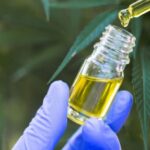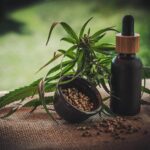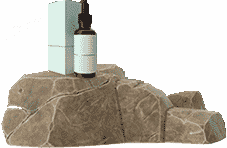Tokyo 2020: The Olympics Welcomes CBD for the First Time in Its Modern History
The Tokyo Summer Olympics has already reached its finale, leaving a lasting impact on the history of the Olympics. Not only was it the first Olympic Games in history to be delayed and the first COVID-19 Olympics, but it was the first time when Olympic athletes could legally use cannabidiol (CBD) after many years of being a banned substance. Besides sports equipment and snack packs, competitors now could bring their CBD products to the Olympic village of the first CBD Olympics (although CBD from overseas is still a big NO in Japan). Thanks to the changes in the World Anti-Doping Agency (WADA) policies in 2018, CBD is no longer an issue for Olympic athletes. Consuming the famous cannabis compound will no longer cause unwanted consequences like disqualifying from the games. So, it’s very likely, soon, CBD may become many athletes’ favorite ingredient.
WADA Excluded CBD from its list of Banned Substances in 2018
Cannabidiol (CBD) wasn’t an option for athletes across various sports because CBD was a banned substance along with all other cannabinoids in the WADA’s list of prohibited substances since the agency’s foundation in 1999.
Consuming CBD could get athletes in trouble, disqualify them from the Olympics and invalidate their results in the trials. However, CBD has gained researchers’ attention in the last few decades, and they started exploring how it affects humans. No studies suggest CBD is a performance-enhancing drug, or that it anyhow affects the athletes’ performance in a way that would make their wins questionable. CBD won’t make Olympic athletes climb better, run faster, or become better soccer players – not that science knows of any of these effects. Still, many athletes claim cannabidiol to help with pain management.
2018 came with good news for Olympic athletes, like with all Americans. The World Anti-Doping agency updated its list of prohibited substances, excluding Cannabidiol (CBD), even before the 2018 Farm Bill made the compound federally legal in the U.S. The new list of prohibited substances now allows Olympic athletes to consume CBD without distress, as it’ll no longer cause unwanted outcomes.
“Cannabidiol is no longer prohibited. Synthetic cannabidiol is not a cannabimimetic; however, cannabidiol extracted from cannabis plants may also contain varying concentrations of THC, which remains a prohibited substance.” – The World Anti-Doping Agency announced on Sept. 29, 2018
The summer Olympic Games in Tokyo became the first one in the modern history of the Olympics, where athletes could legally use CBD per WADA’s new rules with no fear of getting disqualified, even right before the sports events or during the trials.
Mislabeled CBD Products and the Risks of THC Consumption
While CBD is no longer prohibited, WADA still warns athletes about varying amounts of THC (the psychoactive compound in cannabis) in cannabidiol products. Although laws in Europe and the U.S. limit THC concentrations in CBD products up to .3% and .2%, respectively, the CBD market is relatively unregulated, so not all brands comply with the rules.
CBD is booming in popularity worldwide. The increased demand for cannabidiol has transformed the CBD market into a crowded place with an endless list of manufacturers, and brands, some of which take shortcuts to create CBD and make false claims about the ingredients they use. Mislabeled CBD products prevalent in U.S. and European markets may contain higher THC doses than allowed per law and sometimes lower CBD concentrations.
Even though WADA has greenlit CBD for athletes, mislabeled CBD products could still get athletes disqualified. Consuming more than trace amounts of THC will cause consumers to test positive for drug tests that look for THC metabolites in the body. THC remains on the list of banned substances; therefore, it will get Olympic athletes into trouble even when they consume the compound through cannabidiol products.
So far, the only way for athletes to be sure they are consuming only the allowed amount of THC and buying a safe CBD product is to look for 3rd party lab test results confirming the claims made on its label. Test results are usually available on the manufacturers’ websites, where consumers can use the batch number on the label to see the testing results associated with that batch.
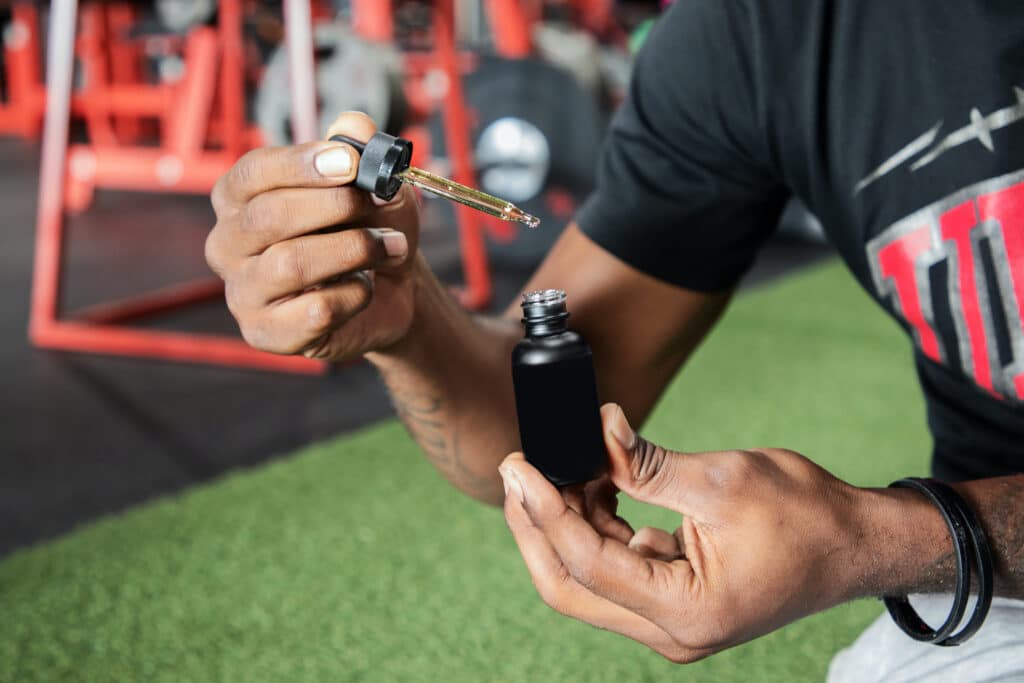
What is CBD?
Cannabidiol (CBD) is one of the hundreds of cannabinoids in the cannabis plant, becoming increasingly popular on the wellness market. The 2018 Farm Bill made hemp-derived CBD products with up to .3% THC content federally legal in the U.S. CBD is legal in many European countries, too, per the 2013 regulation allowing CBD with no more than .2% THC for selling and consumption.
Now cannabidiol has already become a popular product for millions of consumers worldwide who use CBD daily. CBD on the market derives from hemp – marijuana’s cousin plant. Although marijuana also has high CBD content, it also features up to 30% THC and gets users high. Hemp, on the other hand, is abundant in CBD but has only trace amounts of THC. While THC is psychoactive and is responsible for marijuana’s impairing symptoms, CBD doesn’t deliver such effects; Unlike THC, it’s non-psychoactive and is not considered a performance-enhancing drug (although many also argue neither is THC). According to the World Health Organization (WHO), Cannabidiol (CBD) exhibits no effects indicative of any abuse or dependence potential in humans. Hemp-derived CBD is legal in many countries worldwide and is widely available at many brick-and-mortar and online stores. There are different types of CBD products, and some are entirely THC-free.
In contrast, others still contain the legally allowed trace amounts for the entourage effect. This theory claims when more than one cannabinoid is consumed, they can boost one another’s results, so cannabidiol with a legally allowed amount of THC might deliver better outcomes. Per the World Health Organization (WHO), no evidence suggests any public health-related problems associated with the use of pure CBD.
Cannabidiol (CBD) is:
- Natural
- Safe to use
- Non-impairing
- Non-addictive
- Not a performance-enhancing drug
- Legal in many countries
Olympic Athletes Are Now Openly Speaking About CBD in their Training Regimens
Now that CBD is no longer a problem, Olympic athletes have already started sharing stories about their CBD use in their workout regimen and routines.
The U.S. soccer superstar, Olympic gold medalist, and a feminist icon for many Americans has long been a CBD enthusiast who has been speaking publicly about CBD even long before Tokyo 2020. The athlete got involved with a cannabis company in 2019 and since then has been sponsored by Mendi Co., her sister’s CBD brand for athletes.
Rapinoe explains why CBD is a critical part of her routine and how she replaced pain management meds with cannabidiol in a letter she sent to Forbes:
“CBD has become part of my all-natural recovery system that I use throughout the day to help with pain and inflammation, stabilize my mood, and get better sleep. Instead of taking Advil or other pain management meds, I’ve almost exclusively substituted with Mendi CBD products,”
Rapinoe isn’t the only CBD enthusiast amongst the U.S. Olympic athletes; American multi-sport athlete and men’s track and field hurdler Devon Allen openly speaks about CBD in the video published by Rapinoe’s sister’s CBD company – Mendi Co.
“The Primary benefits I see in using CBD is just really recovery for one, for me, is a big piece, and then it just kinda makes me feel good,”
Sue Bird – women’s basketball, five-time gold medalist and Haylie McCleney medal-winning Olympian, are also Olympic athletes using CBD.
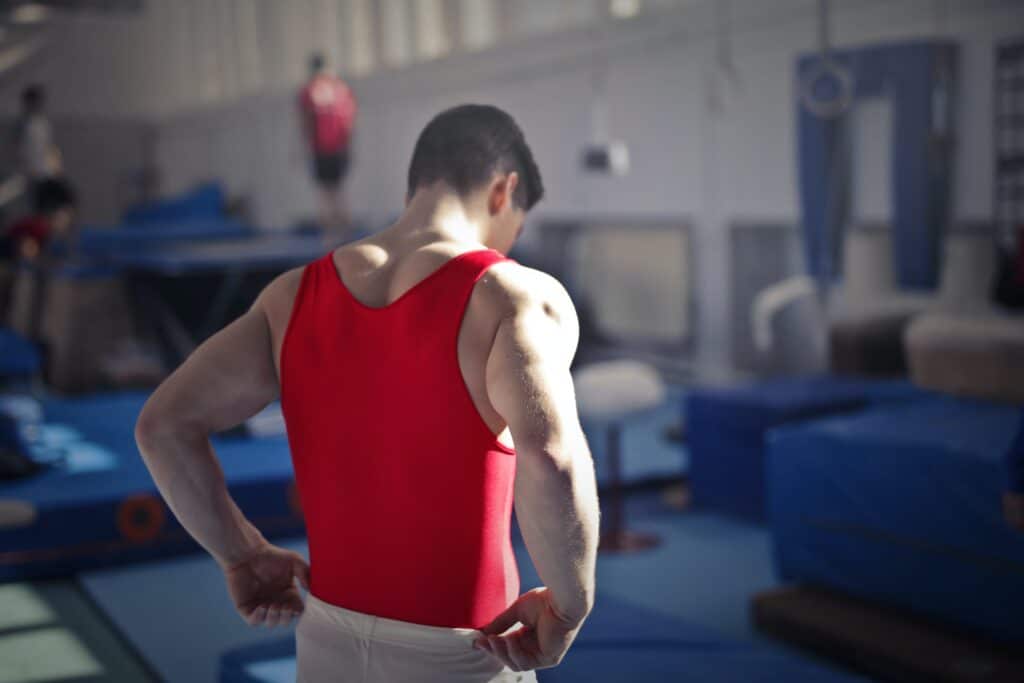
While WADA has Greenlit CBD for the Olympic Athletes, Marijuana Remains on The List of Prohibited Substances
CBD has already debuted at the Tokyo Olympics games, but marijuana is still a big NO. It was why the U.S. runner Sha’Carri Richardson was left out of competition at the 2020 Olympics game – she tested positive for THC due to marijuana use. Despite the controversies, the use of marijuana isn’t allowed for Olympic athletes, and CBD is the only cannabinoid that WADA currently greenlights. Because of the failed drug test, the US Anti-Doping Agency adhering to the WADA’s rules banned Richardson from competing for one month and invalidated her qualifying win, despite being the fastest amongst all U.S. qualifiers. At the “Today Show,” Richardson apologized and explained why smoking marijuana – to cope with her biological mother passing away.
CBD Amongst Athletes
Now that WADA no longer bans CBD, many athletes have already started advocating cannabidiol and started publicly about their use of CBD.
Gabby Douglas is a retired American artistic gymnast. At the 2012 Olympic Games in London, she became the first American to receive gold medals in the team and individual all-around events. She also made history as the first African American to be named the Individual All-Around Champion in the Olympics. Douglas is amongst the athletes who use CBD for pain management and is openly speaking about the benefits of cannabidiol. She thinks CBD would have helped with pain management during her career if the previous rule allowed Olympic athletes to use CBD.
“My experiences in using CBD have led me to believe that I could have been more pain-free throughout my gymnastics career if CBD had been allowed. I am glad that athletes across all Olympic sports will now have the opportunity to use these products and hopefully experience the benefits.” – said Douglas.
As commonly referred to, the legendary boxer – Mike Tyson –is proudly speaking about CBD and how cannabidiol can help athletes. He has already launched his own CBD brand.
“Yeah, I think it’s a miracle oil.” – he claimed in the episode of Joey Diaz’s podcast The Church of What’s Happening Now when speaking about cannabidiol.
Other famous athletes that are amongst CBD enthusiasts and are proudly speaking about CBD and its effects are:
- Yair Rodriguez
- Nate Diaz
- Eugene Monroe
- Dominic Day
- George Kruis
- James Haskell and more.






